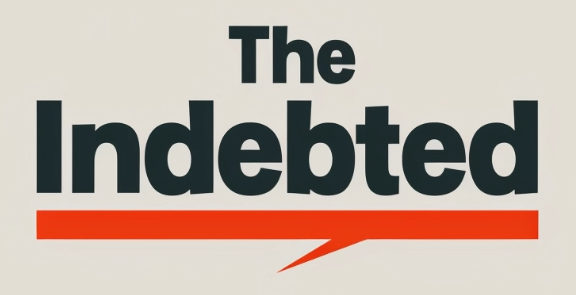Finding extra money in your budget for debt repayment can be a daunting task, but it is an essential step in achieving your financial goals. Whether you are trying to pay off credit card debt, student loans, or a mortgage, having a plan to free up some cash can make all the difference. In this article, I will provide some tips and strategies to help you find extra money in your budget for debt repayment.
The first step in finding extra money in your budget is to create a budget if you don’t already have one. A budget is simply a plan that outlines how much money you have coming in and how much you are spending. It can help you identify areas where you can cut back on expenses and free up some cash for debt repayment. Once you have a budget in place, you can start looking for ways to reduce your expenses and increase your income.
Reducing your expenses can be as simple as cutting back on dining out, canceling subscriptions you don’t use, or shopping around for better deals on insurance and utilities. You can also look for ways to increase your income, such as taking on a side hustle or selling items you no longer need. By combining these strategies, you can find extra money in your budget that can be put towards debt repayment and help you achieve your financial goals.
Assessing Your Financial Situation
As I begin to find extra money in my budget for debt repayment, the first step is to assess my current financial situation. This will give me a clear understanding of my income, expenses, and cash flow, allowing me to identify areas where I can cut back and save money.
Understanding Your Income and Expenses
To assess my financial situation, I need to start by understanding my income and expenses. I will create a list of all my income sources, including my salary, any bonuses or commissions, and any other sources of income.
Next, I will create a list of all my monthly expenses, including fixed expenses like rent or mortgage payments, utilities, and car payments, as well as variable expenses like groceries and entertainment.
Once I have a clear understanding of my income and expenses, I can create a budget to help me manage my finances more effectively. I will prioritize my expenses and make sure that I am allocating enough money towards my debt repayment.
Identifying Unnecessary Expenses
After understanding my income and expenses, I will identify any unnecessary expenses that I can cut back on to free up extra money for debt repayment. This could include things like eating out less often, canceling subscriptions that I don’t use, or finding ways to reduce my utility bills.
I will also look for ways to increase my income, such as taking on freelance work or selling items that I no longer need. By making these changes and finding extra money in my budget, I can start to make progress towards paying off my debt and achieving financial freedom.
In conclusion, assessing my financial situation is a crucial step in finding extra money in my budget for debt repayment. By understanding my income and expenses and identifying unnecessary expenses, I can create a budget and make the necessary changes to start paying off my debt.
Strategies for Reducing Expenses
As I mentioned earlier, reducing expenses is one of the most effective ways to find extra money in your budget for debt repayment. Here are some strategies that can help you cut down on your expenses:
Cutting Down on Wants
One of the easiest ways to reduce expenses is to cut down on your wants. This means spending less on things that you don’t really need, such as entertainment, dining out, and shopping. While it’s important to enjoy life, it’s also important to be mindful of your spending habits.
Here are some tips to help you cut down on your wants:
- Create a budget: A budget can help you track your spending and identify areas where you can cut back.
- Cook at home: Eating out can be expensive, so try cooking at home more often. Not only is it cheaper, but it’s also healthier.
- Cancel subscriptions: If you have subscriptions that you don’t use, cancel them. This includes things like magazine subscriptions, streaming services, and gym memberships.
- Shop smart: When you do need to shop, be smart about it. Look for sales, use coupons, and buy in bulk when possible.
Negotiating Bills and Subscriptions
Another way to reduce expenses is to negotiate bills and subscriptions. Many companies are willing to work with you to lower your bills, especially if you’ve been a loyal customer.
Here are some tips to help you negotiate your bills and subscriptions:
- Call your providers: Call your providers and ask if they can lower your bill. Be polite and explain your situation.
- Shop around: If you’re not happy with your current provider, shop around for a better deal.
- Bundle services: Bundling services, such as internet, cable, and phone, can often save you money.
- Review your bills: Review your bills regularly to make sure you’re not being charged for services you don’t use.
By cutting down on your wants and negotiating your bills and subscriptions, you can free up extra money in your budget for debt repayment.
Increasing Your Income
When it comes to paying off debt, increasing your income can be a game-changer. Here are some ways to explore:
Exploring Side Hustles
Side hustles are a great way to earn extra income and put it towards your debt repayment plan. There are many side hustles to choose from, such as freelancing, pet-sitting, selling handmade products, and more. You can even use your skills and hobbies to create a side hustle that works for you. Consider signing up for a platform like Upwork or Fiverr to find freelance work that fits your expertise.
Seeking Professional Advancement
Another way to increase your income is by seeking professional advancement. This can mean asking for a raise or promotion at your current job, or even looking for a higher-paying job elsewhere. Make sure to do your research and apply for jobs that match your skills and experience. You can also consider investing in professional development courses or certifications to make yourself more marketable in your field.
Remember, increasing your income takes time and effort, but it can pay off in the long run. Keep track of your extra income and make sure to put it towards your debt repayment plan.
Debt Repayment Methods
When it comes to paying off debt, there are several methods you can use to tackle your outstanding balances. In this section, I will discuss two popular techniques: the Debt Snowball Approach and the Debt Avalanche Technique.
The Debt Snowball Approach
The Debt Snowball Approach involves paying off your debts from smallest to largest balance, regardless of interest rates. This method is designed to give you quick wins by paying off smaller debts first, which can help motivate you to continue making progress.
To use the Debt Snowball Approach, start by listing all of your debts from smallest to largest balance. Make minimum payments on all of your debts, but put any extra funds towards the smallest balance. Once that debt is paid off, take the money you were putting towards that debt and apply it to the next smallest balance. Repeat this process until all of your debts are paid off.
The Debt Avalanche Technique
The Debt Avalanche Technique involves paying off your debts in order of highest to lowest interest rate. This method is designed to save you money on interest charges over the long term.
To use the Debt Avalanche Technique, start by listing all of your debts from highest to lowest interest rate. Make minimum payments on all of your debts, but put any extra funds towards the debt with the highest interest rate. Once that debt is paid off, take the money you were putting towards that debt and apply it to the next highest interest rate debt. Repeat this process until all of your debts are paid off.
Both the Debt Snowball Approach and the Debt Avalanche Technique have their pros and cons. The Debt Snowball Approach can be motivating, but it may not save you as much money on interest charges. The Debt Avalanche Technique can save you money on interest charges, but it may take longer to see progress on your debts.
Ultimately, the method you choose will depend on your personal preferences and financial situation. Consider your goals and priorities when deciding which debt repayment method to use.
Planning for the Future
As important as it is to focus on debt repayment in the present, it’s equally important to plan for the future. This means setting up an emergency fund and investing in retirement. These steps will ensure that you are financially secure in the long run and can handle any unexpected expenses that come your way.
Setting Up an Emergency Fund
Having an emergency fund is essential for financial stability. It’s a safety net that can help you cover unexpected expenses without having to rely on credit cards or loans. Ideally, you should aim to have three to six months’ worth of living expenses saved up in your emergency fund.
To set up an emergency fund, start by figuring out your monthly expenses. This includes things like rent, utilities, groceries, and transportation. Once you have a total, multiply it by three or six to determine how much you should aim to save. Then, set up a separate savings account and start contributing to it regularly. You can automate your savings by setting up a direct deposit from your paycheck into your emergency fund.
Investing in Retirement
It’s never too early to start investing in retirement. The earlier you start, the more time your money has to grow. There are several retirement savings options available, including 401(k)s, IRAs, and Roth IRAs.
If your employer offers a 401(k) plan, take advantage of it. Many employers will match a percentage of your contributions, which is essentially free money. If you don’t have access to a 401(k), consider opening an IRA or Roth IRA. These accounts offer tax advantages and can help you save for retirement.
When investing in retirement, it’s important to have a solid financial plan in place. This means setting goals, determining your risk tolerance, and creating a diversified portfolio. If you’re not comfortable managing your own investments, consider working with a financial advisor.
By setting up an emergency fund and investing in retirement, you’ll be better prepared for the future and can focus on debt repayment with peace of mind.





